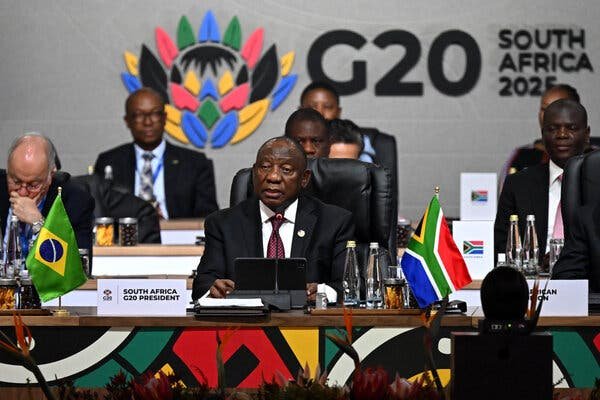G20 Leaders Challenge US Dominance: Can the World Forge Ahead Independently? Global Dynamics Shift

Explore the hypothetical G20 summit where leaders discuss global challenges and cooperation, questioning the traditional role of the U.S. in international affai
G20 Leaders Ponder a World Beyond US Primacy
In a groundbreaking hypothetical scenario, leaders of the G20 nations recently convened, reportedly grappling with a significant question: Is the global community capable of addressing its myriad challenges and advancing without the customary leadership role of the United States? This imagined summit, hinted at by the original title, would represent a pivotal moment in international relations, testing the resolve and capabilities of multilateral institutions.
A Shifting Global Landscape
For decades, the United States has been an undeniable pivot in global politics, economics, and security. Its influence has shaped alliances, driven economic policies, and often spearheaded responses to international crises. However, the conceptual framework of this G20 discussion suggests a growing appetite among other major powers to explore alternative paths, fostering a more distributed and diversified form of global governance.
The Drive for Multilateralism
The hypothetical discussions would likely have centered on enhancing multilateral cooperation across a spectrum of issues, from climate change and economic stability to global health and digital governance. Leaders might have emphasized the need for self-reliance, increased regional cooperation, and stronger commitment to existing international bodies. This could involve exploring new financial mechanisms, collaborative research initiatives, and shared security frameworks that are less dependent on a single dominant power.
Key Areas of Focus
Assuming the summit took place, delegates would have addressed critical global challenges. On the economic front, discussions might have revolved around bolstering supply chain resilience, developing new trade agreements, and reforming international financial institutions to better reflect current global economic powerhouses. In climate action, a more unified front might emerge, with commitments to ambitious emission reduction targets and green technology investments, potentially without waiting for US leadership. Geopolitical stability, particularly concerning emerging hotspots, would also be a crucial topic, with calls for collective security arrangements.
Challenges and Opportunities
While the aspiration for a more equitable and multipolar world is strong, the path is fraught with challenges. The absence of a clear, singular leader could lead to fractured responses, competing interests, and slower decision-making processes. Yet, it also presents an opportunity for innovation, allowing diverse perspectives to shape global solutions and empowering nations that traditionally played secondary roles to step into more prominent positions. The continent of Africa, for instance, mentioned in the original article's URL, could play an increasingly vital role in shaping new global narratives and partnerships.
This speculative G20 summit underscores a profound shift in global consciousness. It signals a readiness to critically examine the existing world order and envision a future where collective action, shared responsibility, and a plurality of leadership styles define the international landscape. While the actual content of such a meeting remains unknown, the mere contemplation of the question—'Can the World Move On Without the U.S.?'—is, in itself, a significant geopolitical statement.